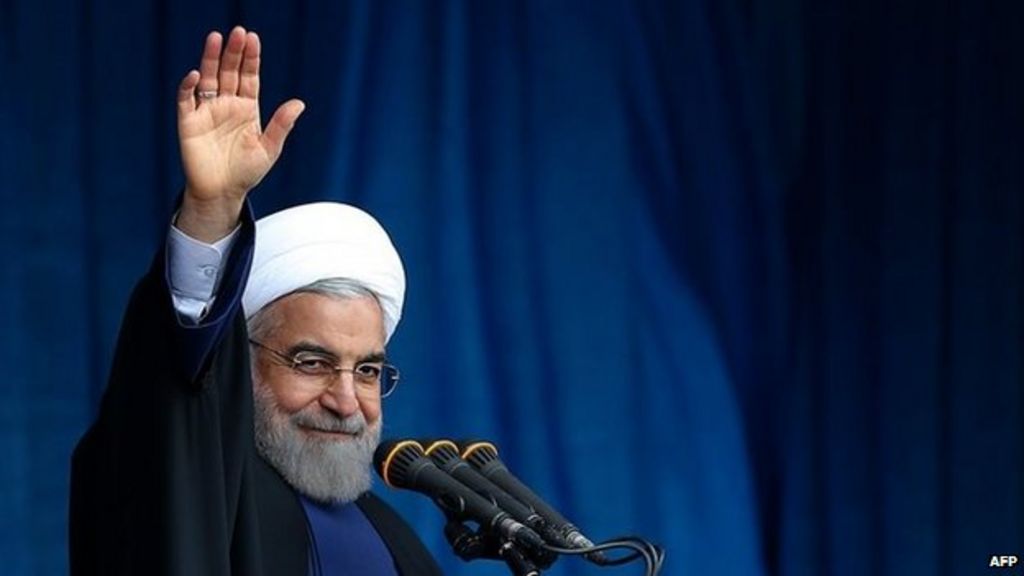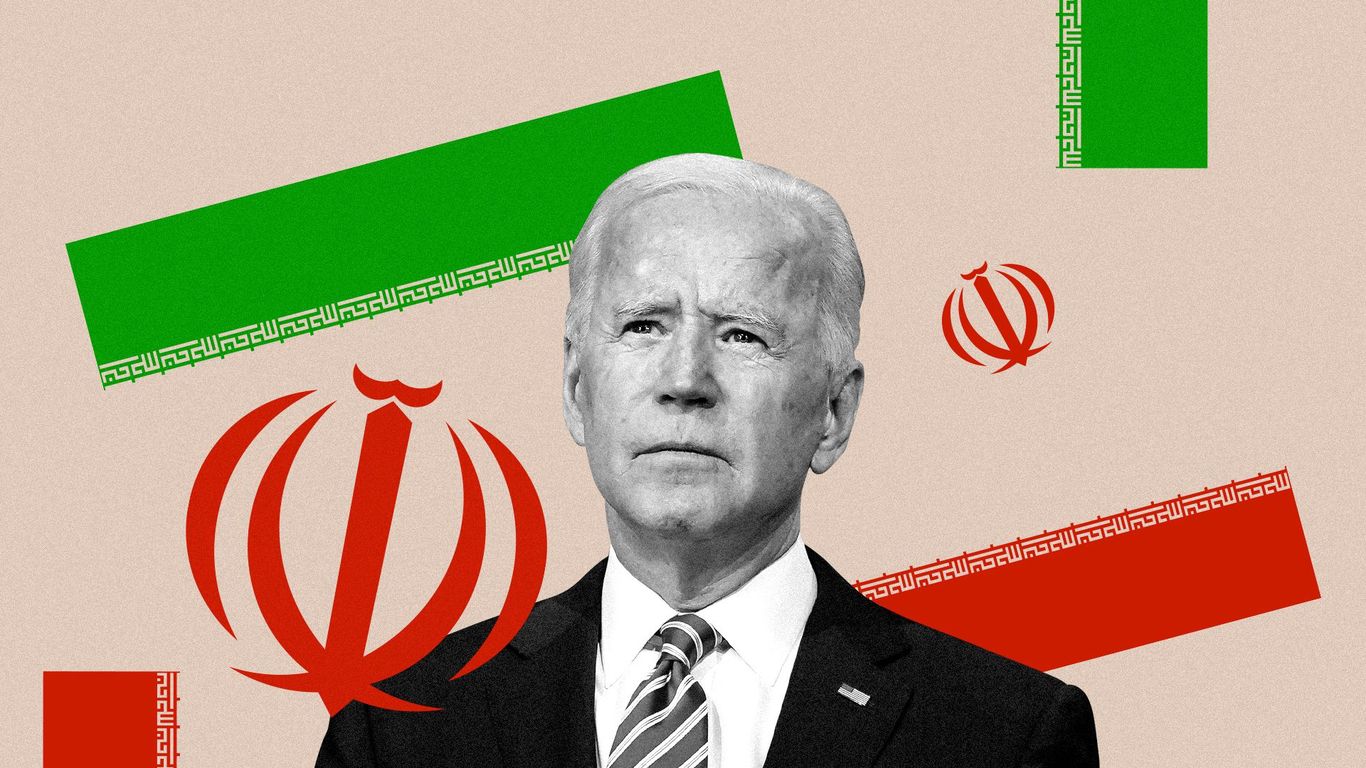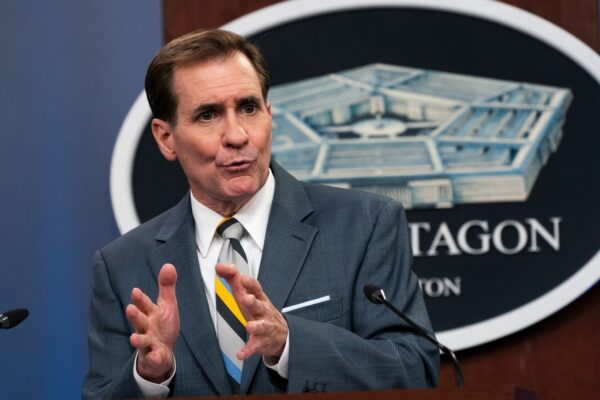
Iran Says Window Still Open for Nuclear
Deal Talks as US Prepares New Sanctions
Dave DeCamp / Antiwar.com
(December 28, 2022) — Iran said Wednesday that it’s still open to talks to revive the nuclear deal, known as the JCPOA, but such negotiations are unlikely as the US says it is preparing more sanctions against the Islamic Republic.
Iranian Foreign Minister Hossein Amir-Abdollahian said that the window for reviving the JCPOA is still open but warned it wouldn’t be open forever.
“If the opposite parties do not stop hypocrisy, especially the Americans, and the Westerners do not act realistically, it is not certain that the window that is open today will remain open tomorrow,” Amir-Abdollahian said while in Oman.
The New York Times reported on Wednesday that the US was looking to curtail the production of Iranian drones over Tehran’s support for Russia. Moscow is said to be using Iranian kamikaze drones to bomb Ukrainian infrastructure, although Tehran insists it hasn’t provided Russia with drones since the invasion of Ukraine. But there’s no doubt Russia and Iran are increasing cooperation as they face similar pressure from the West.
National Security Council spokeswoman Adrienne Watson acknowledged in comments to the Times that the US was looking to use sanctions against Iran’s drone program. “We are looking at ways to target Iranian UAV production through sanctions, export controls, and talking to private companies whose parts have been used in the production,” she said.
The US has also discussed the issue with Israel, signaling the Biden administration may be considering covert action against Iran’s drone production as Israel has a history of sabotage operations inside the Islamic Republic.
National Security Advisor Jake Sullivan last week held a video meeting with high-level Israeli officials. According to the White House, they discussed “Iran’s growing military relationship with Russia, including the transfer of weapons the Kremlin is deploying against Ukraine.”
Another sign that negotiations between the US and Iran won’t happen anytime soon is the fact that President Biden said the JCPOA is “dead” in a video that surfaced last week. Since JCPOA talks fell apart in September, the US has escalated sanctions against Iran and expressed support for protesters inside the country.

Biden Says Iran Deal Is Dead and
That He Won’t Say Iran Deal Is Dead
(December 28, 2022) — Sometimes the worst gaffes President Biden makes are not the ones in which he forgets the truth, but the ones in which he forgets not to tell the truth, or worse, when he forgets not to tell that he is not going to tell the truth.
That’s what Biden did on November 4. A just released video shows Biden being asked if he would announce that the JCPOA nuclear deal with Iran is dead. Biden answers, “No.” When asked, “Why not?” Biden says, “A lot of reasons. It is dead, but we’re not going to announce it.” He then says of the leaders of Iran that “they’ll have a nuclear weapon.”
In a year of diplomatic disappointments and failures that has included Cuba, Venezuela, North Korea and Saudi Arabia, next to replacing the promise to be “a bridge” who would transition America to normalcy to being the president who allowed the world to slip into a new cold war, the failure with Iran is one of the biggest.
Biden passed up an easy early victory to correct what Secretary of State Antony Blinken called Trump’s “disastrous mistake.” While campaigning to be president, Biden said that Trump “recklessly tossed away a policy that was working to keep America safe and replaced it with one that has worsened the threat” and promised to “offer Tehran a credible path back to diplomacy.”

Instead, Biden piled on to Trump’s “disastrous mistake” with disastrous mistakes of his own. Instead of offering Iran a “credible path,” he offered increased sanctions and a refusal to guarantee that the US wouldn’t simply break its promise again.
But as big as the gaffe of admitting the deal was dead was, Biden’s closing remark is an especially egregious gaffe. Biden provocatively tells the person asking the questions that Iran will “have a nuclear weapon.” That remark is either completely disingenuous or a gaffe on top of a gaffe. Biden knows Iran is not building a nuclear weapon.
Only a week before the video was filmed, the US Nuclear Posture Review admitted that Iran is not building a nuclear bomb and that it has not made a decision to even pursue one. The review says that “Iran does not currently pose a nuclear threat” because “Iran does not today possess a nuclear weapon and we currently believe it is not pursuing one.”
Biden’s statement is either dishonest, misinformed or a gaffe. But it highlights the missed opportunity. It would have been so easy to negotiate a deal to stop Iran from building a bomb because they are not even pursuing the building of a bomb.
Though just released, the Biden video was filmed on November 4 during a few week period when several White House officials were declaring the deal dead. All of them seemed to be reading off the same very small cue card of talking points.
On the same day the video was released, John Kirby, the National Security Council coordinator for strategic communications not very strategically communicated answers to questions about Biden’s comments.
Explaining why the deal is dead, Kirby said, “The Joint Comprehensive Plan of Action is just not our focus right now. And it’s not on our agenda. We simply don’t see a deal coming together anytime soon while Iran continues to kill its own citizens and selling UAVs to Russia. There is no progress happening with respect to the Iran deal now. We don’t anticipate any progress anytime in the near future. That’s just not our focus.”

National Security Council coordinator John Kirby.
Both the words Kirby chose and the reasons he offered were right off the talking point cue card. Biden called the deal “dead.” Kirby offered the softer euphemisms that it “is just not our focus right now” and “it’s not on our agenda.” That same week, other US officials used those same words.
Five days earlier, Biden’s special envoy for Iran, Robert Malley, said that “It is not on our agenda. We are not going to focus on something which is inert when other things are happening…and we are not going to waste our time on it… if Iran has taken the position it has taken.”
A few days earlier, on October 12, State Department spokesman Ned Price used those same words, saying that the negotiations are “not our focus right now.”
The reasons Kirby offered came of the same cue card. The US can’t negotiate a deal to prevent Iran from acquiring a nuclear bomb “while Iran continues to kill its own citizens and selling UAVs to Russia.”
On October 30, a senior Biden administration official offered the same two reasons: Iran’s violent response to the protests and its support of Russia’s war in Ukraine. He went so far as to say that, because of those two reasons, “even if Iran came back to the table today and said it wanted a nuclear deal, the U.S. was unlikely to move forward.”
But that is no reason not to negotiate a nuclear deal with Iran. If Iran really were developing a nuclear weapon, it would make immanent sense to stop them from acquiring a nuclear weapon even if they were violently suppressing protests and, especially, if they were supporting Russia with weapons.
The coupling of Iran’s domestic position on protests and its foreign policy position on the war in Ukraine is both absurd and uniquely American. It represents yet another divide between the US and its European allies.
On December 20, high level Iranian and European Union foreign policy representatives met in Jordan and said that, unlike the US, they are continuing to work toward the restoration of the JCPOA nuclear deal. Apparently, a deal that is dead in America can be resurrected in Europe.
Present at the talks were Iran’s top negotiator on the nuclear talks, Ali Bagheri Kani, and the bloc’s coordinator, Enrique Mora. Iran’s Foreign Minister, Hossein Amirabdollahian, and the bloc’s foreign policy chief, Josep Borrell, also met on the sidelines of the meeting.
Unlike the US, Borrell simultaneously stressed the need for Iran “to immediately stop military support to Russia and internal repression in Iran” and that “the two sides agreed to keep talking with the aim of restoring the Joint Comprehensive Plan of Action.” Unlike US officials, Borrell has said that concerns with Iran’s policies on protests and Ukraine need to be separated from the nuclear deal.
The strategical blindness of the US policy is not just that the issues need to be uncoupled because a deal to ensure that Iran doesn’t acquire nuclear weapons is as – or even more – desirable if Iran is supporting Russia in Ukraine.
The strategic blindness is compounded by the self-defeating nature of the diplomatic approach of coupling them. US sanctions and declarations that the JCPOA deal is dead is driving Iran closer to Russia.
It is not preventing them from developing a closer partnership with Russia, it is encouraging them. And that does not discourage Iranian support for Russia’s war in Ukraine, it encourages it.
Ted Snider has a graduate degree in philosophy and writes on analyzing patterns in US foreign policy and history.
Posted in accordance with Title 17, Section 107, US Code, for noncommercial, educational purposes.